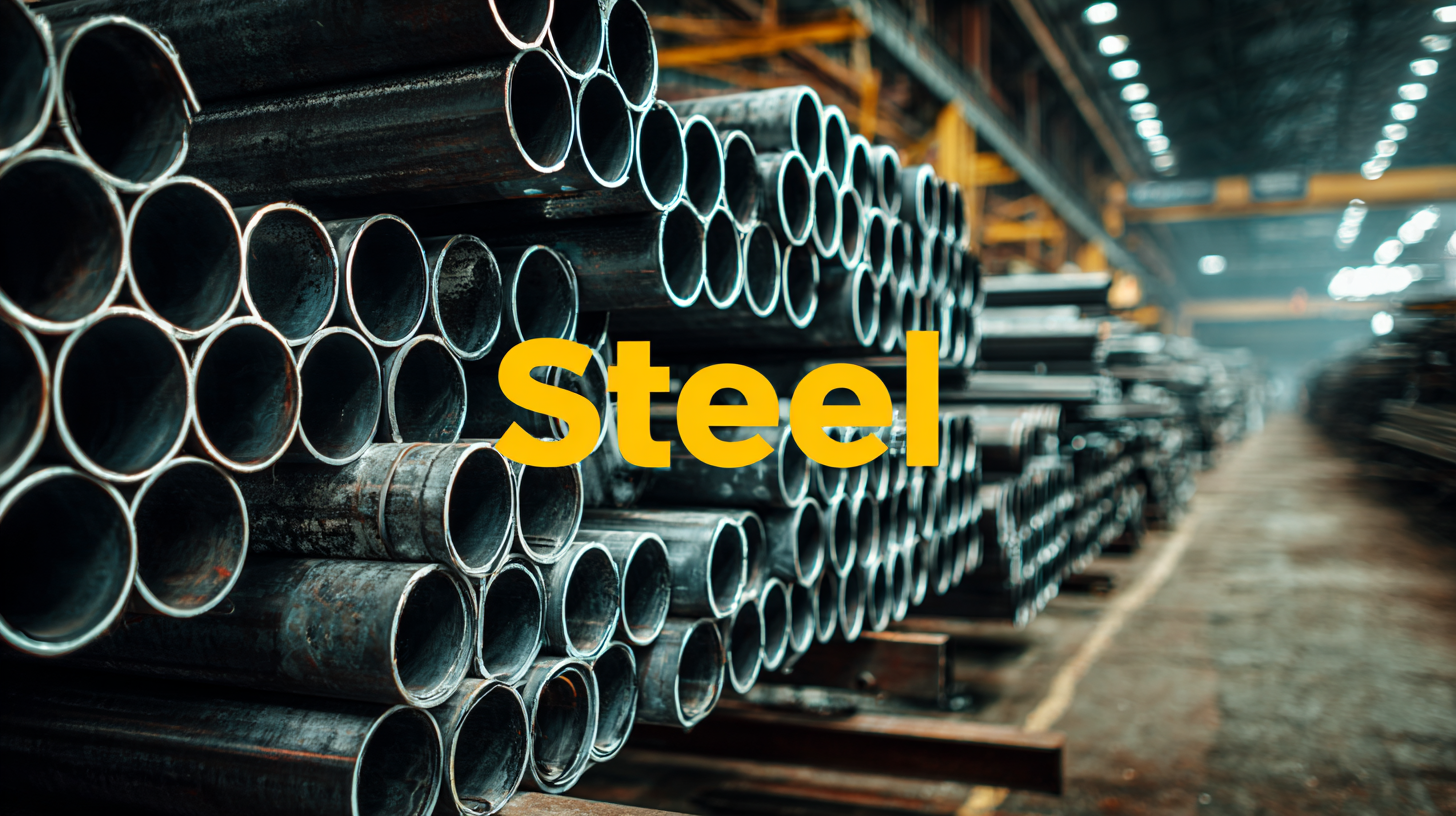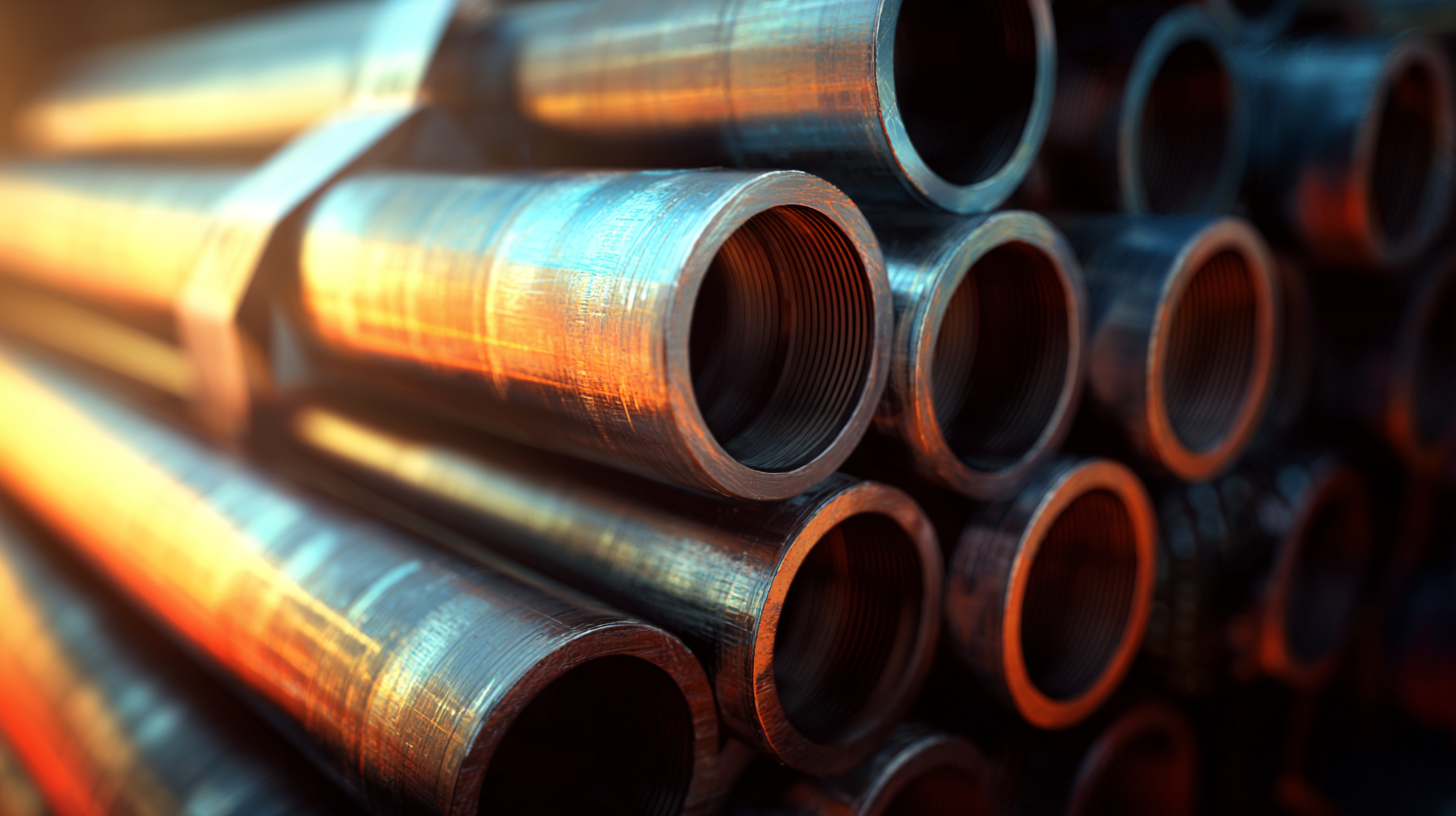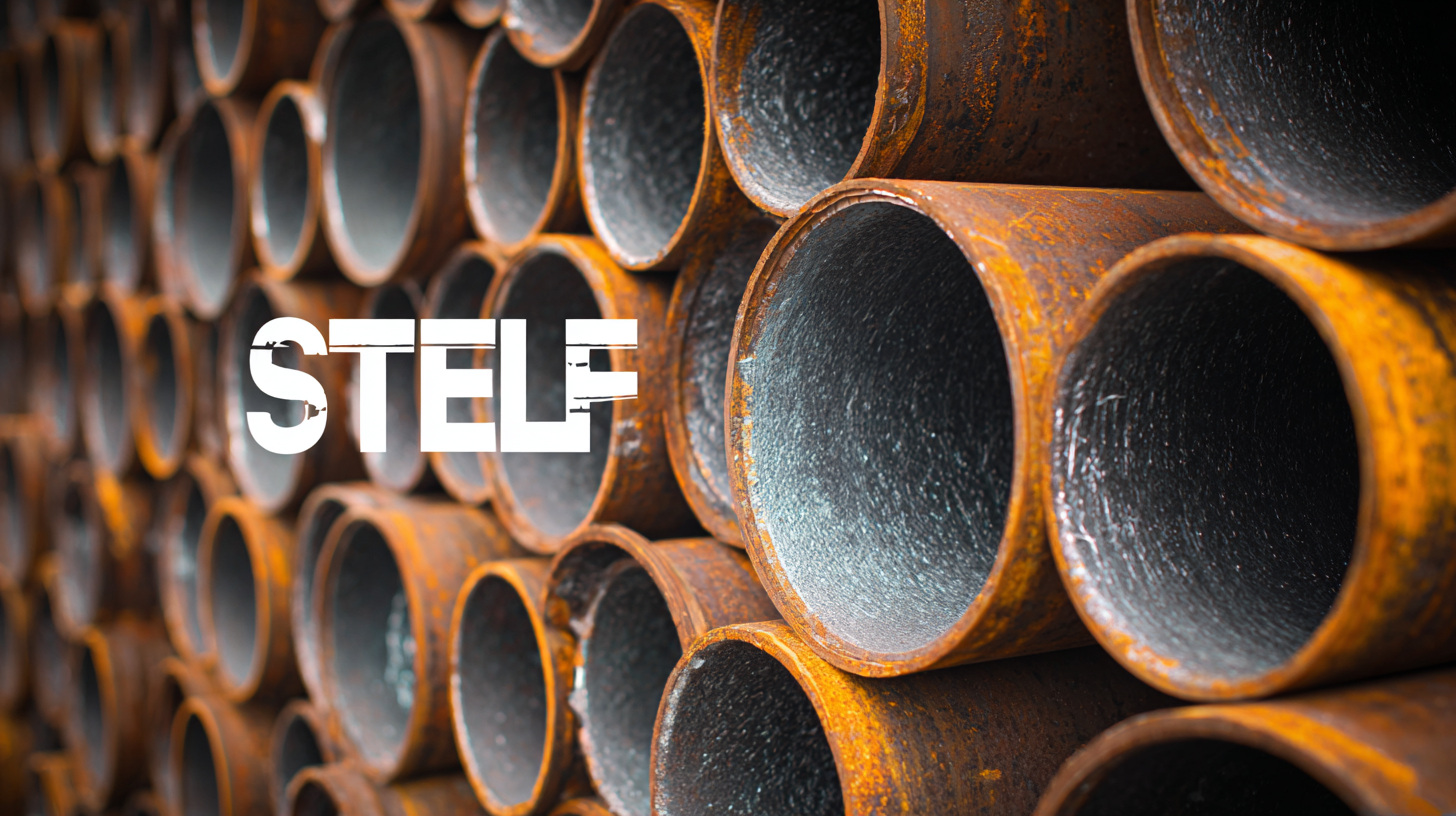In today’s interconnected world, the efficiency of the global supply chain hinges upon the selection of high-quality materials, and steel pipe stands out as a paramount choice. With its unparalleled strength, durability, and versatility, steel pipe is integral to various industries, including construction, oil and gas, and manufacturing. Choosing the best steel pipe not only enhances the structural integrity of projects but also ensures compliance with global standards and reduces long-term maintenance costs.

This blog will delve into five essential benefits of selecting the right steel pipe for your supply chain, highlighting top strategies that can optimize procurement processes and ultimately drive business success. By understanding the critical role of steel pipe, organizations can make informed decisions that align with their operational goals and foster sustainable growth in a competitive marketplace.
High-grade steel pipes play a critical role in enhancing the efficiency of global supply chains, particularly in industries such as oil and gas, where reliability and durability are paramount. These pipes are engineered to withstand extreme conditions, ensuring that materials are transported safely and efficiently. The use of advanced manufacturing techniques and high-quality materials not only increases the lifespan of the pipes but also minimizes maintenance costs, leading to significant savings for businesses operating in competitive markets.
In addition, the increasing adoption of high-grade steel pipes contributes to sustainability efforts by reducing resource wastage and energy consumption during transportation. As industries worldwide strive to optimize their supply chain operations, investing in superior steel pipes offers a strategic advantage. Companies can enhance their operational capabilities while also meeting regulatory requirements and environmental goals, creating a more resilient and responsible supply chain. The continued growth of markets, particularly for stainless steel seamless pipes and carbon steel tubing, highlights the importance of selecting the right materials to support global supply chain demands.
The chart above demonstrates the essential benefits of choosing high-grade steel pipes for a global supply chain. Each benefit is scored from 1 to 10 based on its contribution to enhancing supply chain efficiency, emphasizing the importance of durable, cost-efficient, flexible, sustainable, and high-quality materials.
 When considering the selection of steel pipes for your supply chain, the emphasis on
durability and reduced maintenance can yield significant cost savings.
According to the World Steel Association, steel pipes exhibit a lifespan that surpasses other materials,
often exceeding 50 years under optimal conditions.
This durability means fewer replacements and lower long-term expenditures for companies,
making it an essential investment in today’s competitive market.
When considering the selection of steel pipes for your supply chain, the emphasis on
durability and reduced maintenance can yield significant cost savings.
According to the World Steel Association, steel pipes exhibit a lifespan that surpasses other materials,
often exceeding 50 years under optimal conditions.
This durability means fewer replacements and lower long-term expenditures for companies,
making it an essential investment in today’s competitive market.
Tip: Regular maintenance can further enhance the longevity of steel pipes.
Implementing a proactive inspection schedule can identify potential weaknesses before they escalate into costly problems,
thus extending the life of your infrastructure.
In addition, high-quality steel pipes are resistant to corrosion and wear, which reduces the need for frequent repairs.
A report by the American Society of Civil Engineers highlights that nearly 30%
of pipeline failures are attributed to corrosion. By investing in advanced steel materials, companies can mitigate these risks
and improve operational efficiency.
Tip: Consider investing in protective coatings and treatments that can
increase the lifespan of steel pipes and minimize maintenance efforts. This can significantly lower operational disruptions
and contribute to a more resilient supply chain.
When it comes to the global supply chain, the quality of steel pipes plays a crucial role in optimizing transport and logistics. With the stainless steel seamless pipes market projected to reach USD 5.15 billion by 2030, choosing high-quality materials is not just a matter of compliance, but a strategic decision that can significantly enhance operational efficiency. Steel pipes influence everything from transportation costs to the reliability of supply, and businesses must prioritize quality to maintain their competitive edge in a dynamic marketplace.
**Tip:** When assessing suppliers, ensure they provide certifications and compliance with international standards. This guarantees the longevity and performance of the steel pipes in various applications, minimizing costly disruptions in the supply chain.
Moreover, the development of ERW steel pipes, particularly high frequency welded pipes, illustrates the innovative techniques that are shaping current market trends. These pipes, formed from hot rolled coils, benefit from advanced welding processes that enhance strength and durability, critical factors in logistics that often face challenging environmental conditions. Companies that leverage such advancements can improve their delivery times and reduce costs.
**Tip:** Regularly evaluate the welding technology and fabrication methods used by your suppliers. Staying updated on these advancements can help you negotiate better prices and ensure you are utilizing the most reliable materials available in the market.
The impact of steel pipe standards on global trade compliance and performance cannot be overstated. As markets become increasingly interconnected, adherence to established standards is essential for maintaining product quality and ensuring smooth operational flows. Companies that prioritize internationally recognized steel pipe standards, such as ASTM and ISO, not only strengthen their supply chain but also enhance their reputation among global partners. When stakeholders can trust that the materials they are receiving meet specific guidelines, it minimizes the risk of costly delays, rejects, or even legal repercussions related to non-compliance.

Furthermore, compliance with these standards enables manufacturers and suppliers to streamline their processes, resulting in improved efficiency and cost savings. By utilizing high-quality steel pipes that comply with international regulations, organizations can reduce operational risks associated with subpar materials, which often lead to performance issues in their applications. This proactive approach not only boosts performance metrics but also fosters long-term partnerships with clients who value reliability and quality. In a competitive global market, making informed choices about steel pipe selection based on standards can significantly influence an organization's success.
The use of advanced steel pipes in supply chain operations not only enhances efficiency but also contributes significantly to sustainability efforts. Steel is infinitely recyclable, and recent studies indicate that recycling steel prevents the emission of up to 1.5 tons of carbon dioxide for every ton of steel recycled. This remarkable figure highlights the vital role that advanced steel pipes can play in reducing the overall carbon footprint of global supply chains. By integrating sustainable materials, businesses can align with industry standards and regulations aimed at decreasing environmental impact.
Tips: When selecting steel pipes, consider sourcing from suppliers who prioritize sustainable practices, such as those utilizing electric arc furnace technology. This method is known to emit fewer greenhouse gases compared to traditional production methods, making it a more eco-friendly option.
Additionally, advanced steel pipes are designed for longevity and durability, reducing the need for frequent replacements and repairs. A report from the World Steel Association reveals that the lifecycle cost-efficiency of these pipes can result in savings of up to 20% over traditional alternatives. Investing in high-quality, resilient materials contributes to a more sustainable supply chain while ensuring reliability in operations.
Tips: Conduct regular assessments of your current materials and suppliers. Engaging with companies that focus on sustainability can not only enhance your supply chain's green credentials but also improve your market position as consumers increasingly favor environmentally responsible brands.
| Benefit | Description | Impact on Sustainability | Long-term Benefits |
|---|---|---|---|
| Durability | Advanced steel pipes are resistant to corrosion and wear, ensuring a longer lifespan. | Reduces the need for frequent replacements, minimizing waste and resource consumption. | Lower overall costs and sustainable material usage over time. |
| Energy Efficiency | Streamlined manufacturing processes reduce energy consumption during production. | Lower carbon footprint associated with production and transport. | Cost savings on energy bills and compliance with environmental regulations. |
| Material Recycling | Steel pipes can be recycled at the end of their life cycle, reducing landfill waste. | Promotes circular economy practices in supply chain operations. | Enhanced corporate image through sustainable practices. |
| Performance | High-quality steel pipes optimize operational performance in supply chains. | Reduces downtime and maintenance needs, benefiting operational workflows. | Increased productivity and reliability in supply chain processes. |
| Customization | Advanced steel pipes can be customized to meet specific needs of supply chain applications. | Improves resource utilization and reduces excess inventory. | Provides flexibility and adaptability in changing market demands. |



